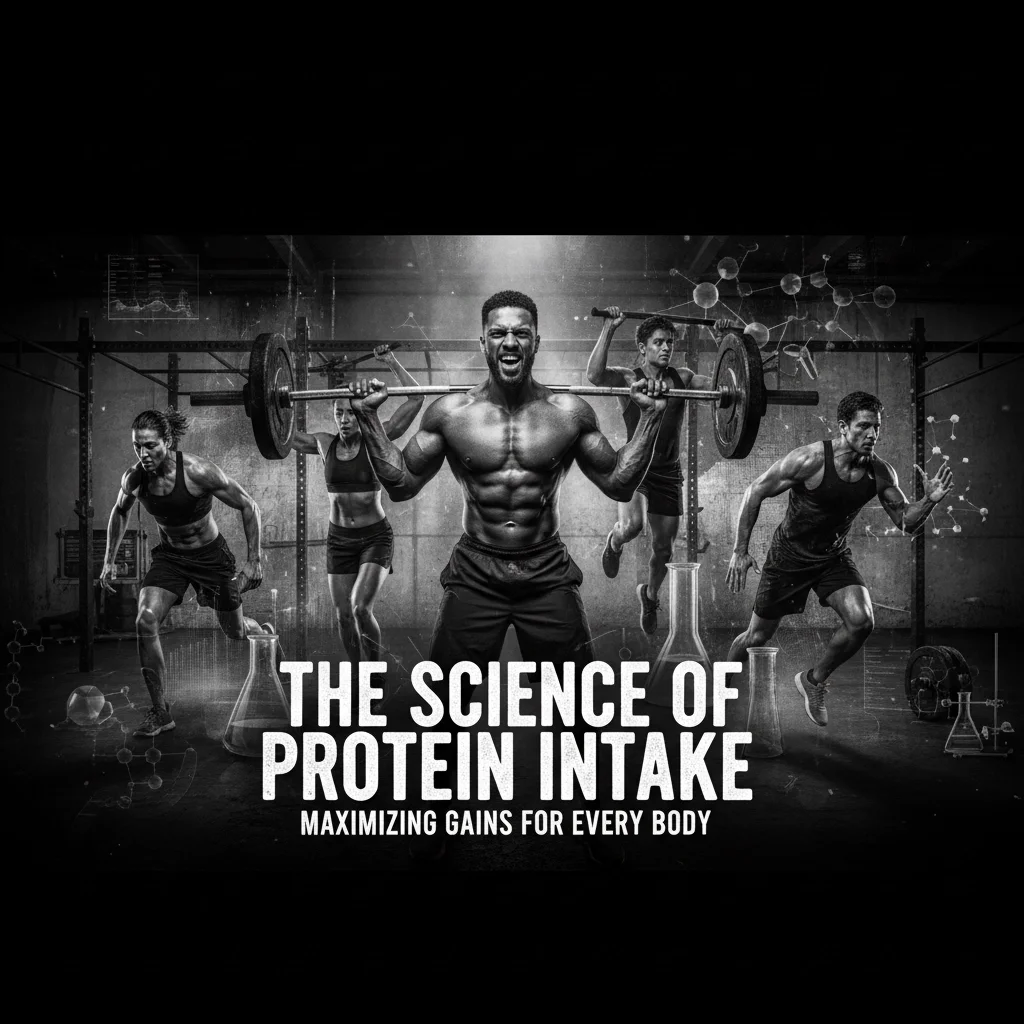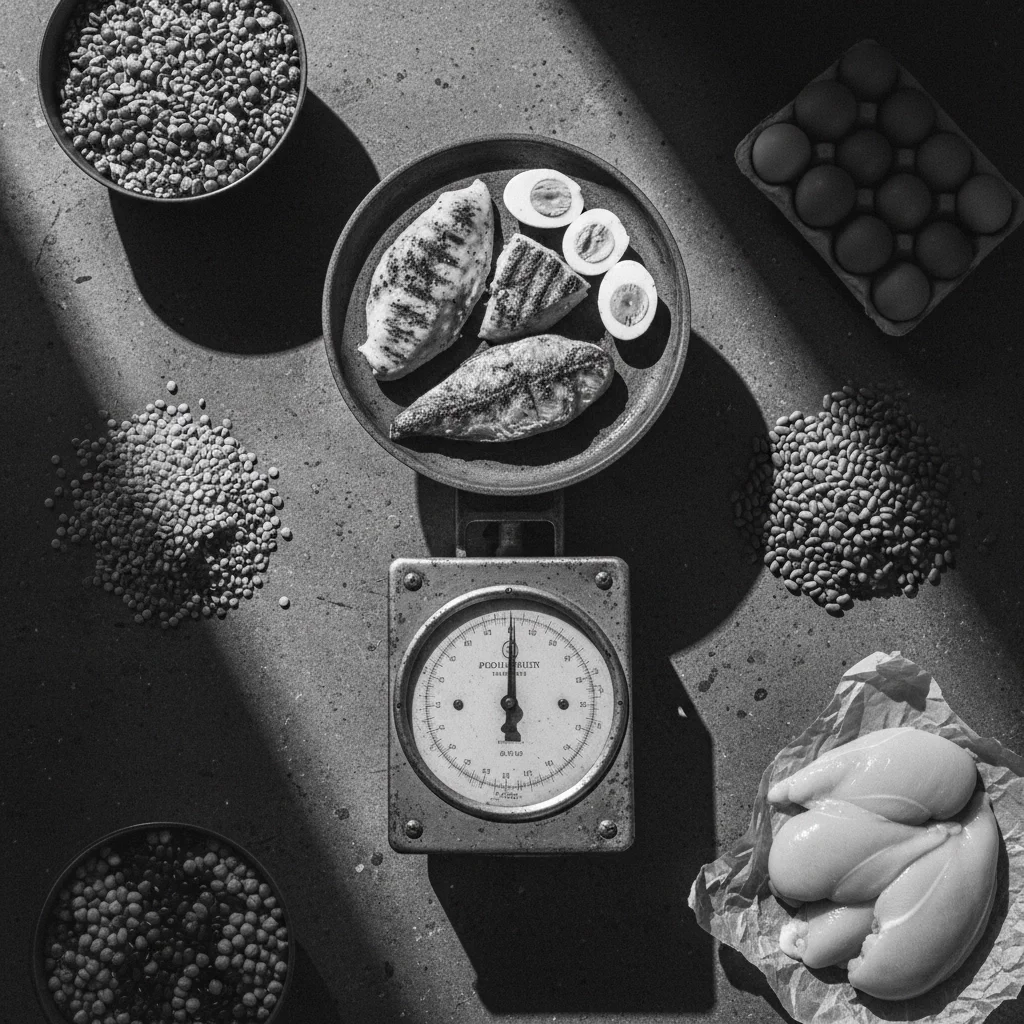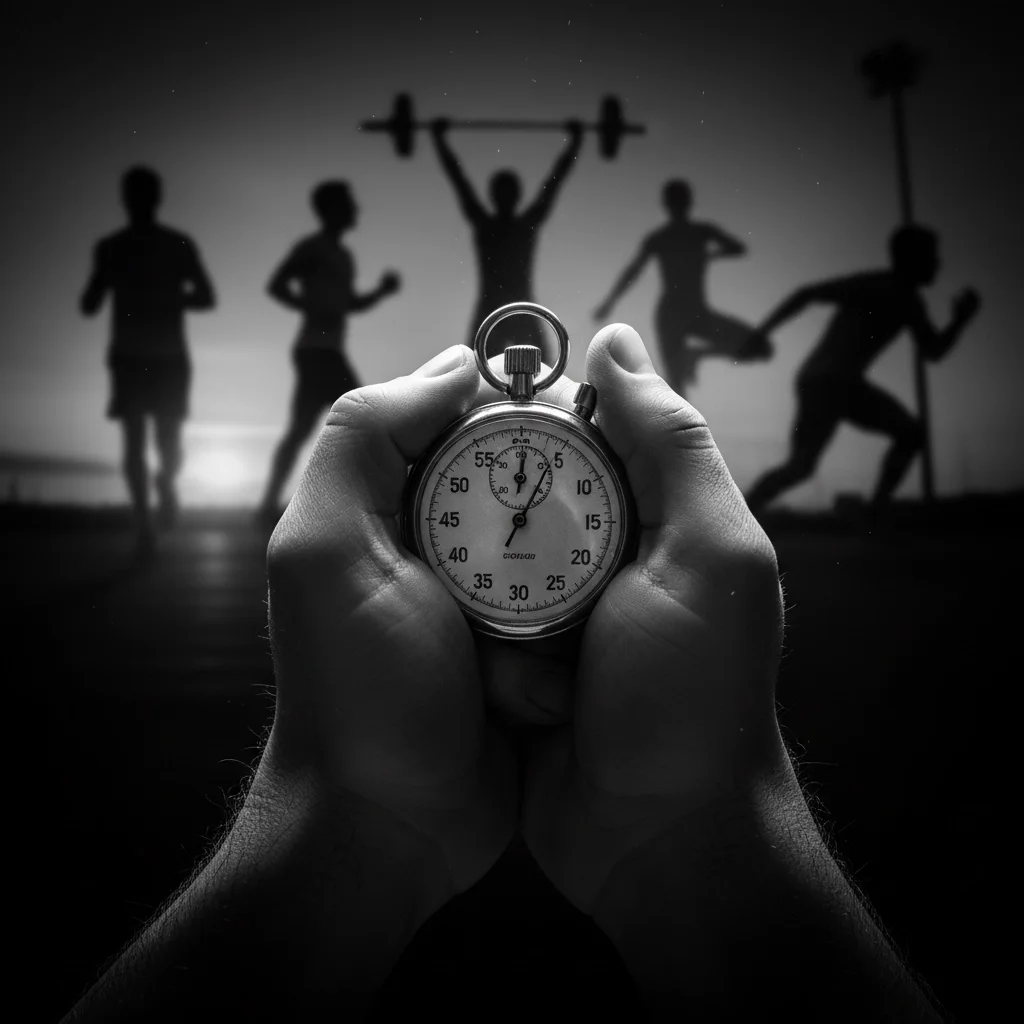The Science of Protein Intake: Maximizing Gains for Every Body
Whether you're a youth athlete just starting out, a seasoned boxer, someone getting back into fitness after 40, or working through rehab - protein is your secret weapon for maximizing results! But here's the thing: there's a lot of confusion out there about how much protein you actually need and when to eat it.
Let's cut through the noise and get into the real science behind protein intake. No complicated formulas or overwhelming jargon - just practical, research-backed guidance that works for every body and every goal.
Why Protein is Your Performance Partner
Think of protein as your body's construction crew. Every time you train - whether that's powerlifting, boxing, or MMA - you're creating tiny tears in your muscle fibers. That's totally normal and exactly what we want!
Your body is constantly breaking down muscle protein and rebuilding it stronger. When you eat protein, you're giving your construction crew the raw materials they need to not just repair the damage, but to build back better. This process is called muscle protein synthesis, and it's happening 24/7.
The magic happens when protein synthesis exceeds protein breakdown. That's when you see real gains in strength, size, and performance. The combination of training and adequate protein creates the perfect environment for your muscles to adapt and grow!
How Much Protein Do You Actually Need?
Here's where the science gets really practical! Research shows that the sweet spot for most people is around 0.7-0.8 grams of protein per pound of body weight (or about 1.6 grams per kilogram if you prefer metric).
So if you weigh 150 pounds, you're looking at about 105-120 grams of protein daily. For our 200-pound athletes, that's roughly 140-160 grams per day.
Good news: You don't need to go crazy with protein! Studies show that benefits plateau around this range, so eating 300+ grams won't give you superhero gains - it'll just make your wallet lighter and your digestion work overtime.
Age Makes a Difference (And That's Okay!)
Here's something really important for our 40+ athletes and parents: your protein needs actually increase slightly as you age. While younger athletes might maximize their gains with 20-25 grams of protein per meal, adults over 40 benefit from bumping that up to 30-40 grams per meal.
Why? Your muscles become a bit more resistant to protein's muscle-building signals as you age. It's not a bad thing - it's just your body being your body! We just need to adjust our approach accordingly.
Timing: It's More Flexible Than You Think!
Remember that whole "you must eat protein within 30 minutes of working out or you'll lose your gains" thing? Yeah, we can relax about that! The research shows that the "anabolic window" is actually more like an "anabolic garage door" - it stays open for several hours.
The 3-4 Hour Rule
Instead of stressing about precise timing, focus on eating protein every 3-4 hours throughout the day. This keeps your muscle protein synthesis elevated and gives your body a steady supply of amino acids to work with.
A simple approach:
Breakfast: 25-35 grams of protein
Lunch: 25-35 grams of protein
Dinner: 25-35 grams of protein
Optional snack: 10-20 grams if needed
Pre-Workout vs. Post-Workout
Both work! If you train first thing in the morning, having some protein beforehand can be beneficial. If you prefer post-workout, that's great too. The key is getting adequate protein within a few hours of your training session.
One cool strategy: having protein before bed! Your body continues building muscle while you sleep, so giving it some amino acids for the overnight shift can be really beneficial.
Sport-Specific and Goal-Based Considerations
Different sports and goals create different demands on your body, and your protein needs can vary accordingly.
For Our Boxers and MMA Athletes
Combat sports require explosive power, endurance, and often involve making weight. You might benefit from the higher end of the protein range (0.8g per pound) to support both muscle development and recovery from high-intensity training.
For Our Powerlifters
Strength athletes often do well with slightly lower protein intakes since the primary goal is neurological adaptation and strength gains rather than muscle size. Around 0.7g per pound is often sufficient, though more won't hurt!
For Body Composition Goals
If you're trying to lose fat while maintaining muscle (which is most of us!), protein becomes even more important. Higher protein intake helps:
Keep you feeling full and satisfied
Preserve muscle mass during weight loss
Boost your metabolism slightly through increased thermic effect
For Youth Athletes
Growing athletes have unique needs! They're not just building muscle - they're growing taller, developing their nervous system, and learning movement patterns. Youth athletes often do well with protein intake on the higher end of the range, around 0.8-1.0g per pound of body weight.
Recovery and Protein: Your Secret Weapon
Here's something that doesn't get talked about enough: protein isn't just about building muscle - it's crucial for recovery! Whether you're recovering from an injury, coming back from a layoff, or just dealing with the normal wear and tear of training, adequate protein helps your body repair and adapt.
For our rehab clients and those dealing with injuries, maintaining protein intake becomes even more critical. Even when you can't train at full intensity, your body is still working hard to heal and recover.
Making It Work in Real Life
All this science is great, but how do you actually implement it? Here are some practical strategies:
Easy Protein Sources
Lean meats: Chicken, turkey, lean beef, fish
Eggs: Whole eggs or egg whites
Dairy: Greek yogurt, cottage cheese, milk
Plant-based: Beans, lentils, quinoa, tofu
Supplements: Protein powder when convenient
Meal Prep Tips
Cook protein in batches at the beginning of the week
Keep hard-boiled eggs ready for quick snacks
Try our high protein ranch dip with veggies for a tasty protein boost!
Make breakfast egg muffins for grab-and-go mornings
Don't Stress the Perfect Plan
Here's the most important thing: consistency beats perfection every single time! Getting close to your protein target most days will get you 90% of the benefits. Don't stress if you're a little under one day or a bit over the next.
Your body is incredibly adaptive and forgiving. As long as you're in the ballpark most of the time and training consistently, you're going to see results!
How WorkTime Can Help
At WorkTime Athletic Performance, we understand that nutrition can feel overwhelming. That's why we offer comprehensive nutrition guidance as part of our holistic approach to performance.
Our team can help you:
Calculate your specific protein needs based on your goals
Create meal plans that fit your lifestyle and preferences
Navigate supplements safely and effectively
Adjust your nutrition as your training evolves
We work with athletes of all ages and abilities, from youth just starting their journey to masters athletes crushing their goals. No matter where you are in your fitness journey, we've got strategies that will work for you!
Your Next Steps
Ready to optimize your protein intake? Start simple:
Track your current intake for a few days to see where you stand
Aim for 0.7-0.8g per pound of body weight daily
Spread it across 3-4 meals throughout the day
Don't stress about perfect timing - just be consistent!
Remember, nutrition is just one piece of the puzzle. Combined with consistent training, adequate sleep, and proper recovery, optimized protein intake will help you reach your goals faster and feel better along the way.
Whether you're training for your first competition, getting back into shape, or just want to feel stronger and more confident, we're here to support you every step of the way. Come visit us at WorkTime Athletic Performance and let's create a plan that works for your life!
Your gains are waiting - let's go get them! 💪





